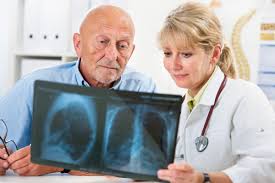 Life changes or stressful life events frequently cause psychological and physiological changes. For the COPD patient, these changes may lead to increased symptoms and physiological insufficiency which provide the input for further changes, and in change, prolonged exposure, lack of preparedness, lack of prior experience, and low psychosocial assets have each been found to heighten the impact of stressful events.
Life changes or stressful life events frequently cause psychological and physiological changes. For the COPD patient, these changes may lead to increased symptoms and physiological insufficiency which provide the input for further changes, and in change, prolonged exposure, lack of preparedness, lack of prior experience, and low psychosocial assets have each been found to heighten the impact of stressful events.
As noted by Rabkin and Struening, “In their original work, Holmes and Rahe scaled life events in terms of the intensity and length of time necessary to accommodate to a life event.” From that orientation, any major event is a Kfe stressor. Gersten et al regard undesirability or negative life stress rather than simply total amount of change as the better definition of stressor. Decrease stress with remedies of Canadian Health&Care Mall.
From the Holmes and Rahe data, with the accumulation of 300 or more life-change units in any given year, the patient has a high probability (about 60 percent to 80 percent) of developing additional medical difficulties. The physician or team member who is watching the patient should be on the lookout for occurrence of these change events in the patients life. It would be desirable to inquire into possible life changes during each visit with the patient. The patient and physician can look at events in the patient’s life according to the number of life-change units he has accumulated, and the patient can be shown that, for most individuals, the probability of increasing medical problems is directly related to a significant increase in his life-change units. The physician can then suggest that, if possible, the patient should avoid some of these events, alter his appraisal of the significance of potentially harmful, challenging, or threatening events, or find social support systems that might be available to buffer the experience of stress. Usually, the patient will ask for help in doing so. In this case, an ideal opportunity is provided for discussion of the whole area of behavior, emotion, and illness.
Comment
The role of psychosocial and psychologic techniques in the treatment and evaluation of a disease for which there is no known “cure” cannot be overemphasized. It is one thing to have a disease and another to be sick or ill. They are not the same thing. With the use of existing medical, psychosocial, and psychologic techniques, many patients with significant COPD can live fairly comfortable and productive lives. The clear message to patients should be that learning to live with and cope with COPD is possible and worthwhile. Part III of this series will review the use of psychopharmacology in the treatment of what would be considered traditional “psychiatric” diseases that may be concomitant with COPD in some patients.
Table 2—Social Readjustment Rating Scale
| Life Event | Mean Value |
| 1. Death of spouse | 100 |
| 2. Divorce | 73 |
| 3. Marital separation | 65 |
| 4. Jail term | 63 |
| 5. Death of close family member | 63 |
| 6. Personal injury or illness | 53 |
| 7. Marriage | 50 |
| 8. Fired from job | 47 |
| 9. Marital reconciliation | 45 |
| 10. Retirement | 45 |
| 11. Change in health of family member | 44 |
| 12. Pregnancy | 40 |
| 13. Sex difficulties | 39 |
| 14. Gain of new family member | 39 |
| 15. Business readjustment | 39 |
| 16. Change in financial state | 38 |
| 17. Death of close friend | 37 |
| 18. Change to different line of work | 36 |
| 19. Change in number of arguments with spouse | 35 |
| 20. Mortgage over $10,000 | 31 |
| 21. Foreclosure of mortgage or loan | 30 |
| 22. Change in responsibilities at work | 29 |
| 23. Son or daughter leaving home | 29 |
| 24. Trouble with in-laws | 29 |
| 25. Outstanding personal achievement | 28 |
| 26. Wife begins or stops work | 26 |
| 27. Begin or end school | 26 |
| 28. Change in living conditions | 25 |
| 29. Revision of personal habits | 24 |
| 30. Trouble with boss | 23 |
| 31. Change in work hours or conditions | 20 |
| 32. Change in residence | 20 |
| 33. Change in schools | 20 |
| 34. Change in recreation | 19 |
| 35. Change in church activities | 19 |
| 36. Change in social activities | 18 |
| 37. Mortgage or loan less than $10,000 | 17 |
| 38. Change in sleeping habits | 16 |
| 39. Change in number of family get-togethers | 15 |
| 40. Change in eating habits | 15 |
| 41. Vacation | 13 |
| 42. Minor violations of the law | 11 |
COPD